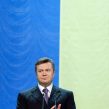
Ukraine Returns to 1996 Constitution, Strengthening President Yanukovych
Publication: Eurasia Daily Monitor Volume: 7 Issue: 186
By:

The Ukrainian Constitutional Court has outlawed the constitutional reform of 2004-2006. This means that Ukraine is returning to the mixed system which existed under the then President, Leonid Kuchma, from 1996-2004, where the president appoints the prime minister and the cabinet reports to the president rather than to parliament. The reform had brought Ukraine closer to a parliamentary republic. While President, Viktor Yanukovych, was elected by popular vote last February, Prime Minister, Mykola Azarov, was appointed last March by parliament. Now the presidency will be further strengthened (UNIAN, October 1).
The reform cancellation will cement Yanukovych’s quasi-authoritarian rule. The reform was originally aimed at transforming Ukraine into a parliamentary republic, but it stopped short of doing so. It was a compromise between those who wanted to limit the authority of Kuchma’s successor, who happened to be Yanukovych’s predecessor, Viktor Yushchenko, and those seeking to preserve a strong presidency. Consequently, the reform adopted in 2004 and introduced in 2006 was incomplete. Presidential authority was not clearly defined, leading to incessant squabbles between Yushchenko and his prime ministers, which slowed the economic transformation of Ukraine. The reform cancellation should prevent repetitions of similar conflicts between Yanukovych and his prime minister. But this comes at the price of strengthening the president and weakening political parties, which will no longer directly influence the choice of the prime minister and the cabinet (UNIAN, October 1).
The reform was passed in December 2004 as a result of a trade-off between Yushchenko and the pro-Kuchma elites who were defeated that month by the pro-Yushchenko “Orange Revolution.” The pro-Yushchenko camp agreed that his authority would be curtailed while the outgoing government supported the controversial third round of the presidential election, in which Yushchenko defeated Yanukovych later that month. The reform was passed in haste, without being approved by the constitutional court, which was required by the law. This was a time bomb waiting for a strong president to reverse the reform citing this procedural violation. Yushchenko and Tymoshenko wanted to reverse the reform when they were in power, but they failed to muster support for respective motions in parliament or the court. However, Yanukovych succeeded as his party dominates parliament, and judges hand-picked by his team during the past several months are in the majority in the constitutional court.
On October 1, Constitutional Court Chief Judge, Anatoly Holovin, announced that on September 30, the court ruled that law No. 2222, according to which the 1996 constitution was amended on December 8, 2004, was null and void. Holovin explained that the court had not approved law No. 2222 which was a constitutional violation. Holovin asserted that the 1996 constitution is back in force. The court obliged the government and parliament to bring the legislation into line with that constitution (UNIAN, October 1). Parliamentary Speaker, Volodymyr Lytvyn, said at least 40 important laws would have to be amended, including the law on the cabinet and the law on parliamentary procedures (Kommersant-Ukraine, October 4).
Lytvyn also recalled that in line with the 1996 constitution there are no more limitations on the number of caucuses in parliament or their composition. This means that more caucuses may appear in parliament. Lytvyn recalled that any 14 deputies can form a caucus (UNIAN, October 4). There are five caucuses in the current 450-seat parliament, including two opposition caucuses. In the current conditions, the return to the 1996 constitution means that opposition will start to shrink, with businessmen deputies switching to the pro-government majority. This should make life for Yanukovych easier as far as economic reforms are concerned. For example, Yanukovych will not have to take into account the opinions of the anti-market communist faction which has been part of the pro-government coalition. Formally, there is no longer a pro-government coalition, and deputies can now freely move between caucuses.
The following are among other important changes: the president no longer has the right to dissolve parliament for failing to form a majority coalition, as there is no more need for a coalition, or for not appointing ministers, as it will now be up to the president to appoint them. Parliament will not appoint the security, privatization, and the anti-monopoly chiefs. The prime minister, rather than the parliamentary speaker, will act as president if the president is impeached or if he dies. The cabinet will have to resign when a new president is elected, rather than after parliamentary elections. Azarov will have to sack two deputy prime ministers as there are currently six of them, but the 1996 constitution allows for four.
The pro-government caucuses have agreed to confirm by amending the constitution that the next parliamentary election will be held in October 2012 with the presidential election in March 2015 (www.rada.gov.ua, October 4). The opposition feared that the ruling elite would use the restoration of the 1996 constitution to extend the term in office for either the current parliament or Yanukovych or both. On the other hand, the opposition suggested calling early parliamentary elections in March 2011 (Ukrainska Pravda, October 4). Now that the pro-government majority agreed that the return to the old constitution should not entail any changes to election dates, parliament should approve this decision smoothly given the majority’s numerical strength.




